8 Important Steps To Take After Receiving Your Commercial Cannabis Grow License

You secured your license. Now what?
As a new operator in an emerging market, it’s important to get to work as soon as you receive your commercial cannabis grow license. This not only helps you stay ahead of your competition, but it also makes sure you are not impacted by regulations that require licensees to be operational within a certain timeframe or risk license forfeiture.
To help you get started with your commercial cannabis grow operation, we put together 8 essential steps to aid your transition from a conceptual business to an operational one.

#1. Celebrate and Involve Everyone
Securing a commercial cannabis grow license is a huge accomplishment and it’s important to celebrate your hours of hard work. Of course, recognize your team and their efforts, but be sure to also recognize your community as a whole. Establishing a commercial cannabis grow operation in a community will garner both criticism and praise, so it’s beneficial for you to start your business’s residency in the area by thanking the community, recognizing praise, and combating negative criticism.
Consider creating some positive PR with a press release and/or interviews with local or online media outlets, as well as joining your local Chamber of Commerce to start making connections. Now is also a good time to establish a social media presence for your operation if you plan to leverage one. This gives you a place to promote any positive press you create as well as an opportunity to start gaining followers. (Of course, be mindful of social media platform guidelines around posting cannabis content.)
Hyping up your business early, while it’s still in development, gives future customers the opportunity to watch you build your operation, in turn piquing curiosity in them once you officially “go live.” Generating positive buzz is valuable, and will support your future marking initiatives down the road. Once you recognize your team and community, it’s time to turn your attention to becoming operational.
#2. Evaluate Your Plan
In states with heavily contested and litigated merit-based application processes, months to years can pass before licenses are issued. That means from the time you submitted your application to the time you received your license, some things may have changed, so it’s important to evaluate what, if anything, needs to be updated from your initial plan.
#3. Determine What Other Licenses You May Need
Unfortunately, your commercial cannabis grow license is likely not the only license you need to operate legally in your state. With your plan in place, it’s time to get a firm understanding of what additional licenses and approvals are necessary to commence operations. Each state has different licensing requirements that you can find on their official government cannabis website. You’ll likely need to register your grow operation with whatever agency your state categorizes cultivation under, such as the Department or Office of Agriculture. This registration typically proves your operation is compliant in regards to water quality, waste removal, chemical usage, etc.
Additionally, you may need a business license from the city and county you’re operating within. And if you’re planning on handling the transportation of your product once your business is operational, you’ll want to start working on obtaining that license as well.
To secure any additional licensing, it’s helpful to have the proper paperwork in order. Some documents you may need include:
- Commercial cannabis grow license
- EIN letter
- Business entity operating bylaws, minutes of organizational meeting
- Any and all agreements with lenders, investors, or landlords
#4. Meet with Regulators, Community Stakeholders, and Gatekeepers
The key players in your community are important to have on your side. These people include your state representatives and the regulators specifically assigned to your license, as well as the mayor, city manager, city council, chief of police, fire chief, and zoning personnel. Remember: Your proposed commercial cannabis grow operation may be the first experience they have with a cannabis business.
Go out of your way to set up meet-and-greets and solicit warm introductions with these stakeholders, including those that may feel less favorable toward your operation. (This is where your Chamber of Commerce connections we mentioned earlier can come in handy.) Also, consider bringing key members of your team with you to these introductions, especially if you’re not planning on being the “face” of the operation. You and your team should take this opportunity to listen, educate, and address any concerns.
Ultimately, the better your relationship with community leadership, the smoother and faster your commercial cannabis grow project will proceed. Consider offering tours, hosting public community awareness events, and providing any opportunity you can to educate anyone willing to learn.

#5. Make Sure Funding Is Secured
The application phase is often self-funded or supported by a friends-and-family (F&F) round, with construction and operational portions raised once there’s an indication on a license. This can work, but if fundraising doesn’t happen timely or according to plan, it can stall or kill the project.
Ideally, prior to receiving your commercial cannabis grow license, you’ve already negotiated funding, and money can be accessed and deployed based on milestones. Be sure any financial models are representative of the current project and market status with your sources and uses included.
When reviewing your financial models, consider these questions:
- Is all required capital committed under favorable or at least realistic terms? If not, how much is outstanding?
- Who are the investors? At what valuation?
- Are the initial investors willing to invest additional funds with licensing milestones met?
- Has the valuation gone up now that the license is in hand?
Although fundraising for cannabis can be challenging, more options are available now that institutional lending through local credit unions and smaller banks is more common. There’s also the potential to offset your capital needs through equipment financing, rebates, and participating in incentive programs.
Remember that your business is subject to the 280E tax code, so make sure you plan for that burden when securing financing. Keep in mind that many, if not all, of your licenses will also have annual registration renewal fees.
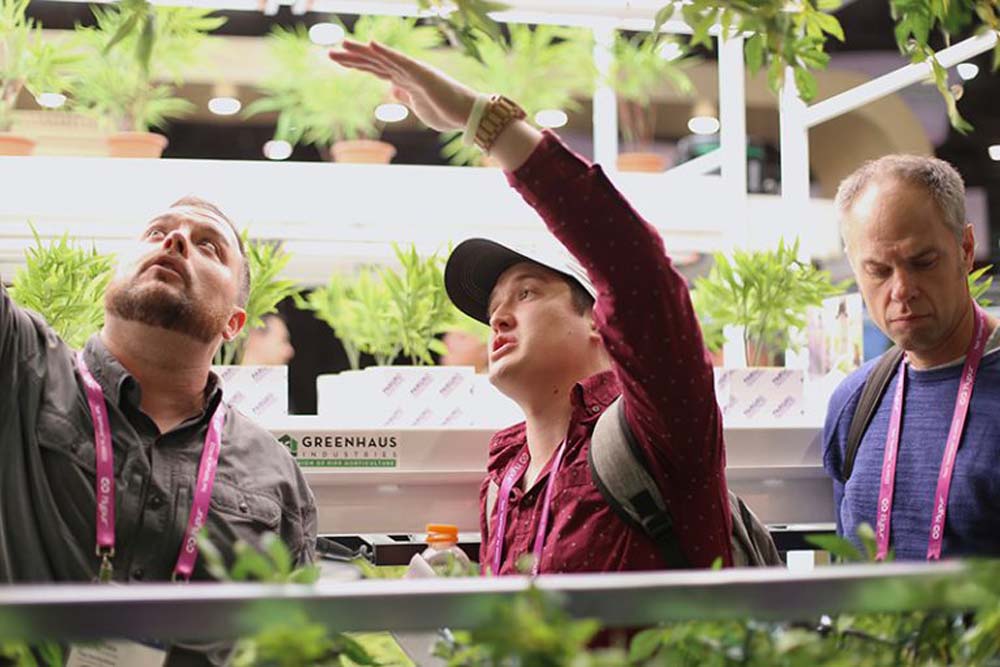
#6. Narrow Down Design, MEP, and Equipment
Depending on the requirements of your application, you may already have a complete set of facility drawings, or you may only have a basic conceptual design. If you only provided a basic design, it’s time to hire an architect, engineers, and consultants to create a full set of drawings.
Things to consider as you design:
- Budget
- Regulated plant capacity/plant count
- Building or plot size
- Waste removal process
- Phased planning (utilizing your current budget with expansion considerations for the future)
We suggest hiring experienced cannabis operators as consultants to provide input to the architect and MEP team on room sizing, electrical demands, environmental conditions, water usage, fertilization and irrigation, proposed plant spacing, and the post-harvest process. It’s essential to consult with operators with experience at the scale you’re looking to operate now and in the future.
It’s also important to utilize vendors with a proven track record of success and cannabis-specific experience, like Pipp Horticulture. We provide expertise and guidance gained from working with top commercial cannabis growers across the globe and can help license holders set up and scale any size cannabis grow operation. Cannabis cultivation equipment is massive and needs to stay top of mind when designing your facility.
Grow equipment needs include:
- Mobile vertical grow racks, carts, In-Rack Airflow Systems & grow trays
- Dry/Cure room mobile storage
- OSHA-approved ladders, scaffolding, man-lift, or ELEVATE platform
- Environmental sensors
- IPM equipment (foggers/misters, sprayers, foamers)
- Harvest equipment
- Post-harvest stations and equipment
- Secure storage
- Lockers
- Plant containers
- Growing media
- Nutrients and fertilizers
- IPM regiment
- Beneficial insects
- Hardware and software
- Personal protective equipment (PPE)
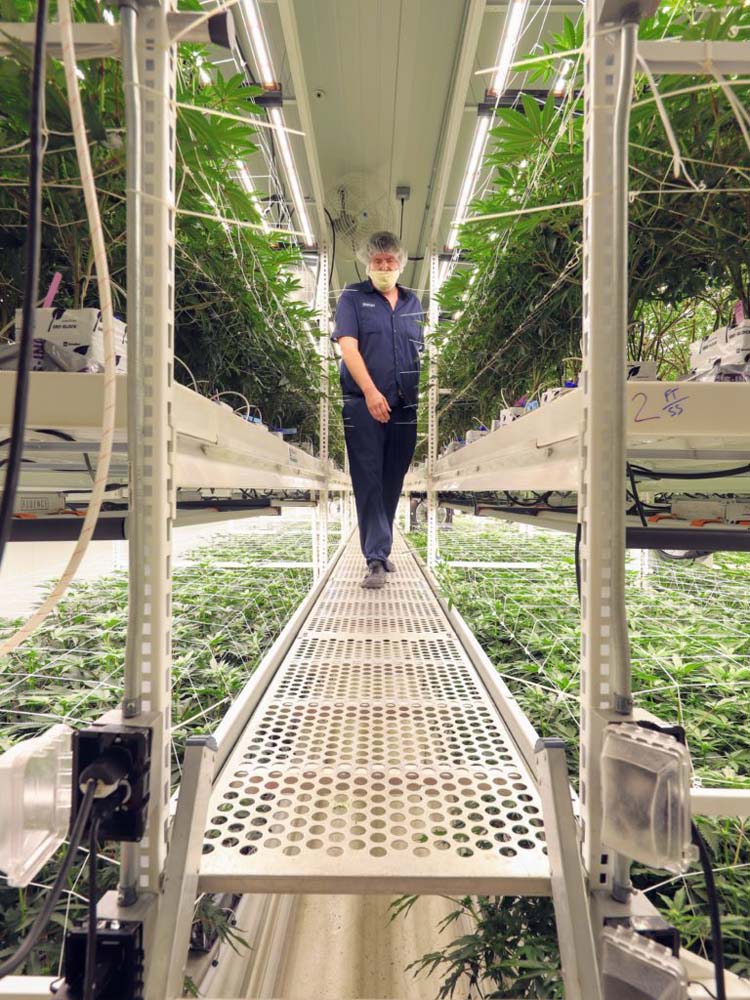
#7. Build Your Team
You must be intentional when narrowing down what positions you need to fill and when. Companies often hire a master grower right away even though cultivation may not start for six or more months. Depending on your existing team and current needs, initial hires should focus more on finance, construction, and project management.
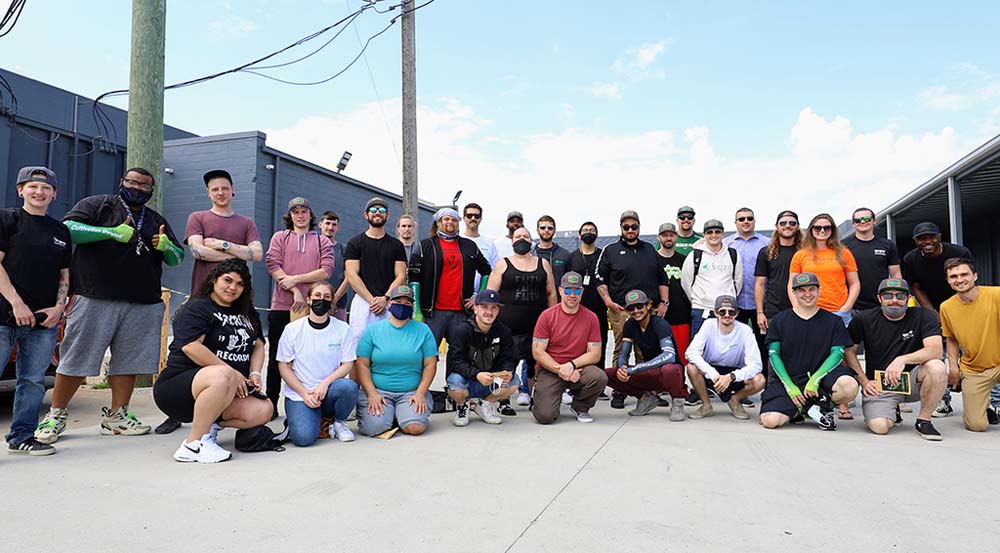
Key Internal Hires:
- Project Manager
- Owners’ Rep
- CFO/Controller
- Operational Advisor
Key External (3rd-Party) Hires:
- Legal with experience with local building and zoning ordinances and processes
- Code Consultant
- Architect experienced in building cannabis facilities
- MEP team experienced in building cannabis facilities (often referred by architect)
Be sure to create a staffing plan that includes fully-burdened compensation estimates and a timeline for recruiting, hiring, and training.
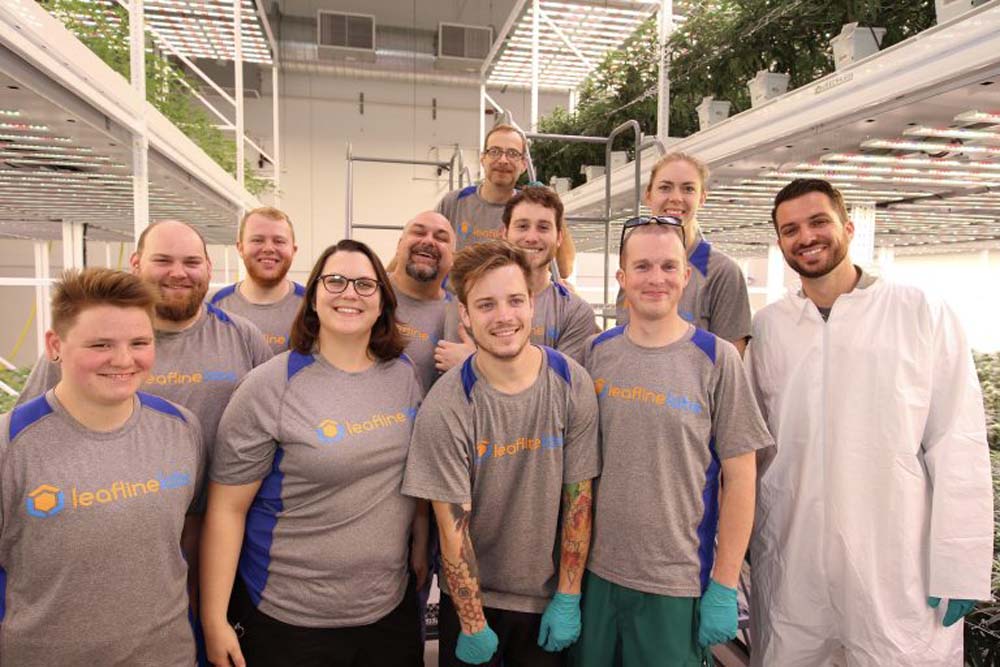
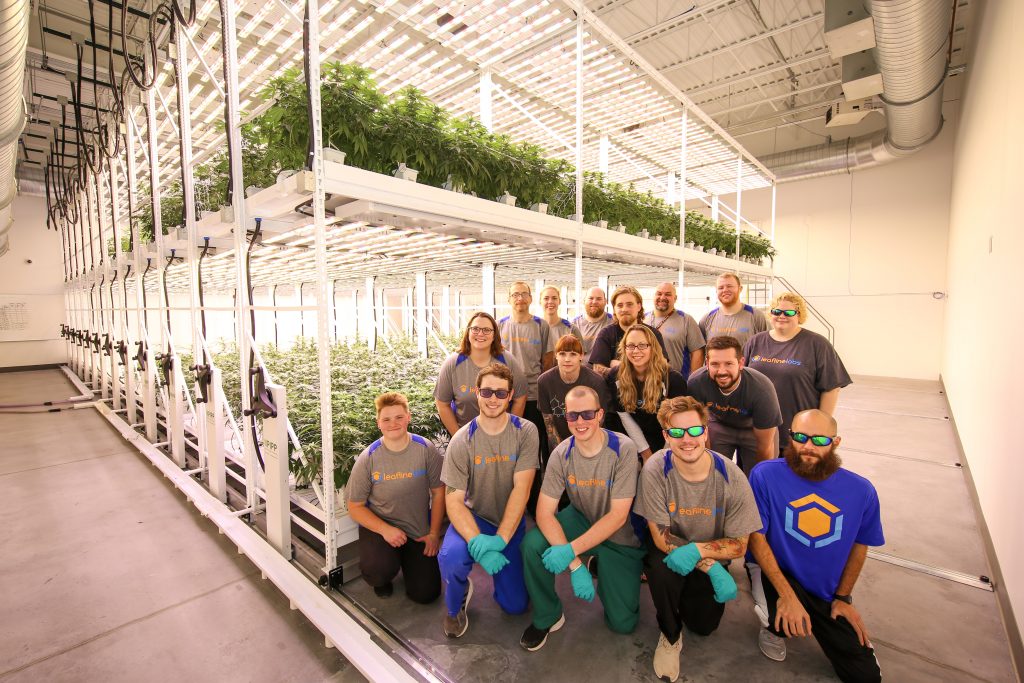
#8. Initiate Commissioning Process
In construction, commissioning is the professional process of ensuring all building systems behave correctly and perform interactively according to the Design Intent, or Owner’s Project Requirements (OPR), of the building. Put simply, it’s making sure all building systems are working correctly before initializing operations.
The key persons involved in commissioning include:
- Facility Manager/Operations/General Manager
- Maintenance Team
- Head of Cultivation & Extraction
- Head of Manufacturing
- Security (internal)
This is a great time to identify responsibilities, coordinate, and set up onboarding and training with your team and equipment vendors. We suggest filming as much commissioning and training as possible for your future standard operating procedures (SOPs) and training guides. This process can also help you determine what your requirements will be for future employee applicants.
Conclusion
Securing a commercial cannabis grow license is a serious accomplishment, so be sure to celebrate! But remember that time is of the essence in this rapidly growing industry, so you must get to work as soon as you can.
It’s an overwhelming process, but following these 8 steps can make it go smoother. When you’re ready to start designing, reach out to us at Pipp Horticulture, and our experienced team of indoor cannabis operators and designers will work with you to create an efficient, effective, and high-yielding commercial cannabis grow operation.
